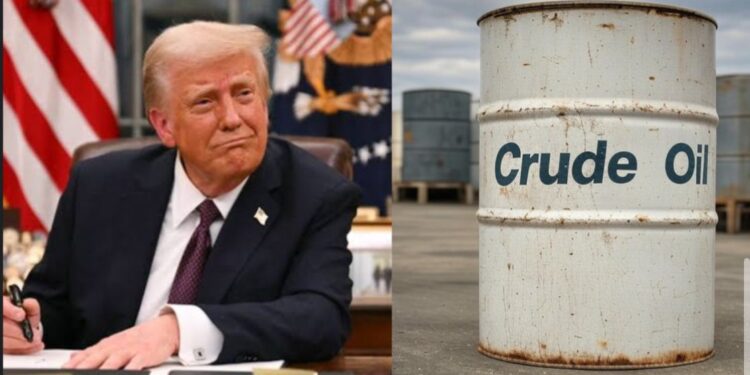


The Chief Executive Officer of the Nigerian Midstream and Downstream Petroleum Regulatory Authority (NMDPRA), Farouk Ahmed, has attributed the recent decline in global crude oil prices to the renewed wave of aggressive tariff policies rolled out by former U.S. President Donald Trump. Speaking at a press briefing in the State House, Abuja, Ahmed warned that Trump’s protectionist trade policies are fueling uncertainty in international oil markets, driving volatility, and dampening investor confidence.
According to Ahmed, the erratic and inconsistent nature of Trump’s tariff policies is unsettling the balance of demand and supply in the energy sector. “The global oil market today is reacting sharply to the erratic tariffing policies of the American government,” Ahmed said. These tariffs, aimed at multiple countries and regions, including China, are making it challenging for investors to make long-term plans due to the unpredictability surrounding the U.S. government’s economic direction.

Ahmed expressed concerns that the Trump administration’s energy posture appears to favor lower crude oil prices, possibly below the $50-per-barrel mark, through aggressive domestic drilling and strategic manipulation of global supply lines. This development could have ripple effects for oil-dependent economies like Nigeria, which relies heavily on crude exports for revenue and foreign exchange inflows. Nigeria’s 2025 budget was benchmarked on a projected oil price of $74 per barrel, and a significant drop below this mark could lead to revenue shortfalls.

The NMDPRA boss noted that many oil traders are now operating on a “daily strategy,” buying and selling within 24 hours due to fears of sudden policy swings from Washington. “We’re seeing traders close out by the end of each day because they’re unsure what tomorrow’s news from the U.S. will bring,” he said. This kind of market volatility is not healthy for the global market.

Nigeria, which exports nearly 90% of its crude oil, is particularly vulnerable to price fluctuations driven by external shocks. Ahmed warned that the volatility in oil prices could impact the country’s national reserves and the strength of the naira. The recent drop in crude oil prices has already wiped off $1 trillion from energy stocks, and oil-dependent economies like Nigeria are likely to feel the pinch.
On a positive note, Ahmed highlighted that local refineries are playing a more active role in meeting domestic fuel demand. The country’s petrol imports dropped from 44.6 million liters per day in August 2024 to 14.7 million liters per day by April 13, 2025, a reduction of nearly 30 million liters daily. This development is seen as a step towards reducing Nigeria’s dependence on foreign fuel and strengthening energy security.
The NMDPRA is committed to balancing domestic output with strategic imports to maintain market stability. As the global oil market continues to react to Trump’s tariff policies, it remains to be seen how Nigeria’s economy will be affected. Ahmed called for greater coordination among global powers to avoid actions that may destabilize energy markets. With the current volatility in oil prices, Nigeria’s oil-dependent economy will be closely watching the developments ¹.













